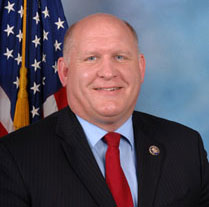WASHINGTON, D.C. – U.S. Rep. Glenn ‘GT’ Thompson, PA-5, has voted to support H.R. 2279, the Reducing Excessive Deadline Obligations Act, which passed the House by a vote of 225 to 188.
The legislation, composed of three separate bills, seeks to modernize existing federal law and increase the role of the states in environmental cleanups under the Comprehensive Environmental Response, Compensation, and Liability Act (CERCLA).
“Passage of H.R. 2279 will protect businesses and local municipalities from expensive and duplicative federal hazardous substance cleanup requirements, which stands to help the 17 Superfund sites in Pennsylvania’s 5th Congressional District,” stated Thompson.
“Additionally, these reforms will prevent EPA regulations, which the agency admits are overly burdensome and costly, from preempting state requirements pertaining to hazardous substances.”
Included in the Reducing Excessive Deadline Obligations Act:
· H.R. 2279, which provides flexibility for EPA to determine as appropriate whether to review, and if necessary revise, regulations promulgated under the Solid Waste Disposal Act, and will preserve existing state financial assurance laws from preemption.
· H.R. 2226, which requires the EPA to consult with states before beginning remediation activities at a Superfund site and provide credit for state Superfund cleanup costs.
· H.R. 2318, which would waive the U.S. government’s immunity from state laws as they apply to federal Superfund sites, potentially subjecting federal agencies to civil penalties and state requirements for private Superfund sites.
Background:
Created in 1980 under the Comprehensive Environmental Response, Compensation, and Liability Act, the Superfund program was designed to spur joint federal-state efforts to clean up and manage abandoned hazardous waste sites.
There were 1,321 Superfund sites across the country. 95 sites are located in Pennsylvania, 17 of which are located in the Fifth District.
